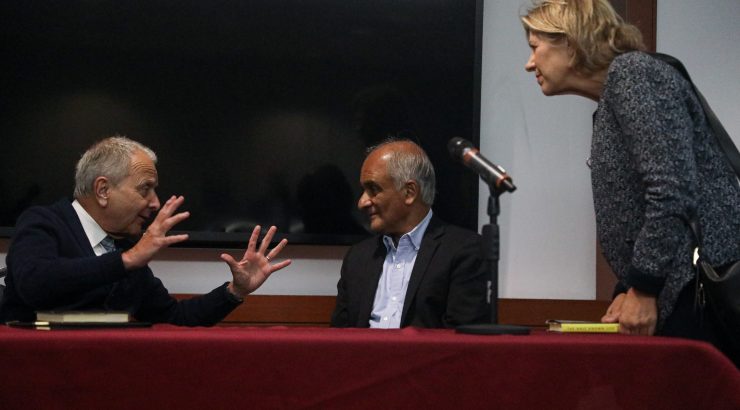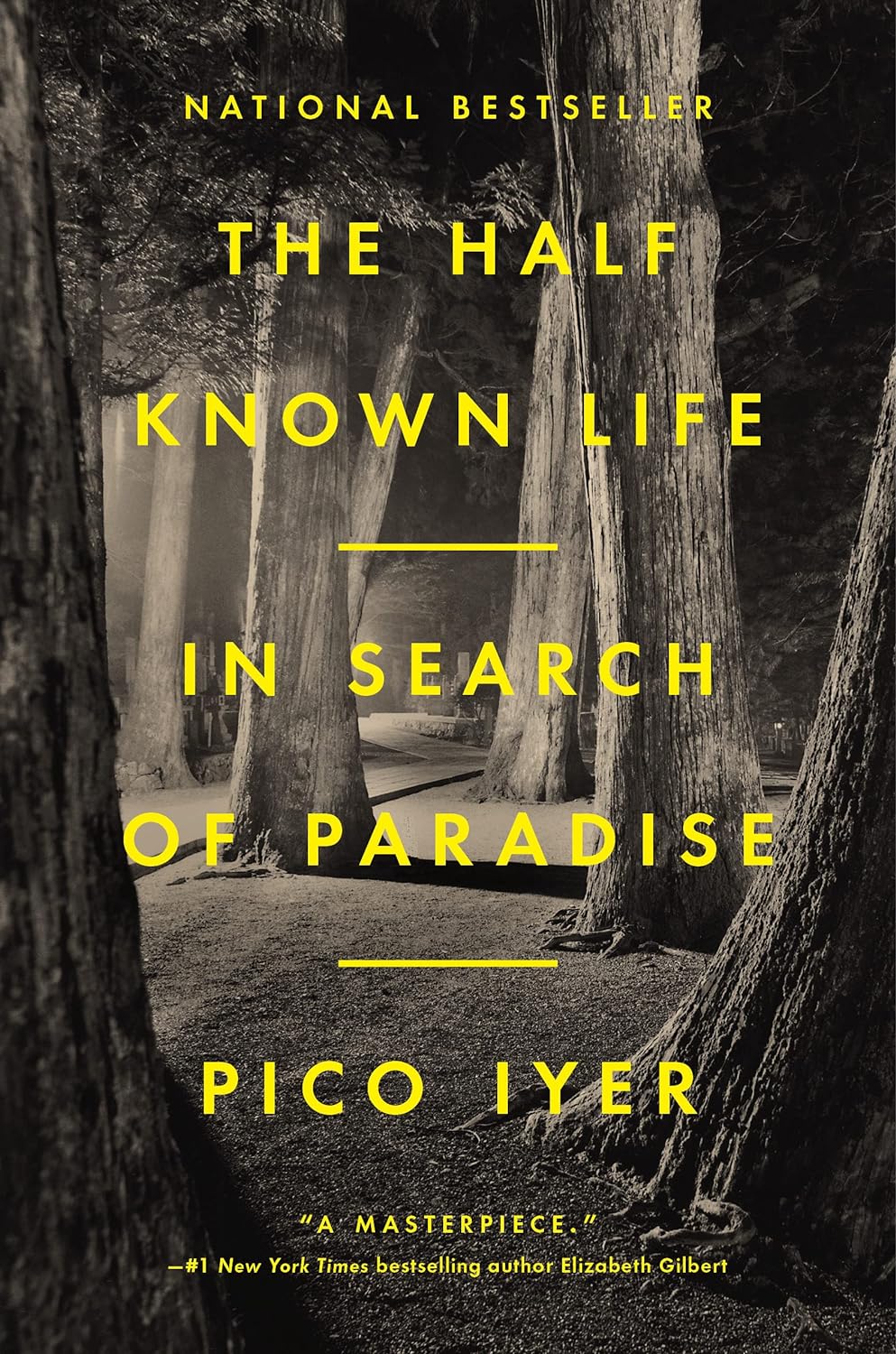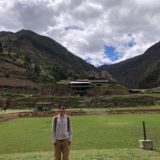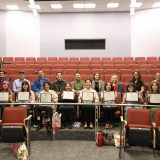
The Half Known Life: In Search of Paradise with Pico Iyer
May 1, 2024
 On Earth Day, April 22, 2024, Wilkinson College’s English Department in collaboration with the journalism program, hosted Pico Iyer for a book talk on his most recent book, The Half Known Life: In Search of Paradise. The conversation was led by Iyer’s friend and a familiar face, Chapman University President Emeritus Dr. Jim Doti.
On Earth Day, April 22, 2024, Wilkinson College’s English Department in collaboration with the journalism program, hosted Pico Iyer for a book talk on his most recent book, The Half Known Life: In Search of Paradise. The conversation was led by Iyer’s friend and a familiar face, Chapman University President Emeritus Dr. Jim Doti.
In his introduction, Doti struggled to define Iyer’s writing career given Iyer’s breadth of work from formal essays to travel writing, though eventually profiled Iyer as an essayist and a traveler. “I don’t want to call Pico a renaissance man, that’s kind of trite,” Doti said. “I would like to consider him more of a man for all seasons. You can ask him just about anything and he’ll give you a very thoughtful, provocative response.,” Doti said.
And a very thoughtful, and provocative conversation ensued.
Iyer’s recent book, The Half Known Life, is a compilation of his adventures, focusing on one mission: finding paradise in a divided world.
How do people in divided places such as Iran or North Korea find peace in the midst of suffering? How does paradise exist or be found in a world with differing religions? Is paradise an idea or a place? Does it only exist in the afterlife? These were all thoughts and questions Iyer dove into as he described his travels and observed different cultures.
The Western world has a particular notion as to what paradise looks like. Oftentimes, Iyer hinted, the Western audience doesn’t perceive politically or war torn countries to have peace or paradise at all.
Doti had been a long time reader of Iyer prior to becoming president of Chapman. “I physically met Pico maybe 20 years ago, but I felt like I’ve known him much longer because I read all of his works, and he became a hero of mine,” Doti said.
Iyer was the university’s first Presidential Fellow and frequented campus to give talks and “liven the intellectual life of the campus,” as Doti described.
As an American journalist, Iyer has gone to many corners of the earth: from Iran to North Korea, and to his current home in Japan. His travels have amounted to almost 50 years of memorable experiences, visiting places he describes as, “not usually known as honeymoon destinations.”
For his latest book, Iyer started his travels in Iran.
In Iran, though Iyer said he always felt that he was being watched, the trip proved to be one of the most memorable, because he got to experience the culture and country for the first time, first hand, rather through news articles or through a second hand source. Though Iyer himself had spent years researching Iran, writing articles and even a novel on Iranian history, his actual visit there allowed him to see a greater depth into the Iranian people, their spirit, faith, and culture.
“It just confirmed my sense which lies behind my travels,” he said. “The places we hear the most about: Iran, Cuba, or North Korea, are actually the places we know the least about, because we see them just through screens and in two dimensions. The human reality inevitably explodes all the assumptions or perceptions…” Iyer said. “I bet you every place you’ve visited is radically different from the image [you’ve] had. The world is much larger than the ideas we have of them,” he said.
Though he does not identify with Islam, Christianity, or Judaism, Iyer says he connects with various aspects of these religions, amongst other spiritual practices he’s encountered throughout his life. His travels have led him to multiple visits to Israel, where he says he feels connected to the Holy City of Jerusalem, as well as to the temples in Kyoto, in his friendships with Buddhist monks, and as he talks to the Dalai Lama – whom he’s traveled with a number of times.
Iyer’s visit to Chapman, fittingly on Earth Day – a celebration of the earth and its beauty – further emphasized his perspective that paradise can be found in everyday life. Pulling from the various influences in his life, Iyer says that this idea is how you can really find peace and influence the world.
It’s easy to feel helpless in a place where there’s so much war, pain, and death. But, it’s important to remain centered and be realistic with how you want to make a difference.
“If you’re hoping to do too much too quickly, you’re always going to be disappointed,” Iyer said, quoting the Dalai Lama. “Don’t cast your mind up into the sky…but work with what you have with your friends, your neighbors in this moment, and that’s where you can find everything that will sustain you,” he said.
“And, it’s close to paradise?” Doti asked.
“Yes, that’s the best paradise we’ll find, I think [the Dalai Lama] would say,” Iyer replied.
(Pictured in header: (Left to right) Chapman University President Emeritus Dr. Jim Doti, Pico Iyer, Susan Paterno)

